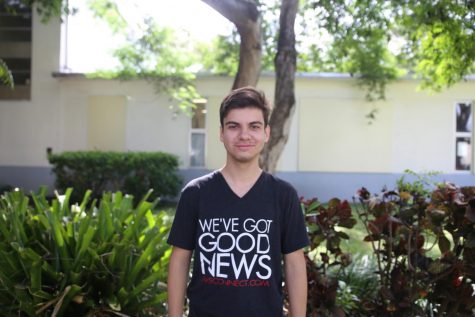The Age of Accountability
Sep 19, 2018
It is fair to say that public officials get held to a higher standard than the average citizen; they are elected or appointed to serve the best interests of the people and should act accordingly. Making the distinction between how a certain action is seen when committed by a public official or a private citizen begs the question: how high is this separate standard and does it apply when the official was nothing more than an average member of society? While it is safe to say that actions taken by a person while in public office are inherently scrutinized to a greater extent, there seems to be a rather faded line in the sand regarding the evaluation of a public official’s past. For example, infidelity is often sensationalized by the media but not necessarily taken into account when determining how fit someone is for office.
President Clinton’s scandal while in the oval office resulted in the drafting of articles of impeachment, not for his infidelity, but rather for lying to Congress about the incident. By the same token, once you get past the media coverage of President Trump’s infidelity as a private citizen, the real issue lies in his alleged attempt to cover up the scandal while running for public office and thus violate campaign finance laws. Both legal violations came at a time when the individuals were holding, or in the process of attaining, public office. It may be harder to distinguish how much weight the actions of a private citizen should carry when they come under the spotlight of a government job.
Extensive background checks that only accompany high public office often bring to light certain events that may never have surfaced if the person were to remain a private citizen. In examining the past acts of someone looking to assume public office, several factors come into play: the age of the person in question at the time of the event, the credibility of the information, and the nature of the event. These three factors can be readily seen and argued in the newest allegation against Supreme Court nominee Brett Kavanaugh. Dr. Christine Ford, a well-respected professor at Palo Alto University in California, has accused Kavanaugh of sexual assault while they were in high school, both aged 17. Dr. Ford has volunteered to testify before the Senate Judiciary Committee to give her side of the allegations Kavanaugh has vehemently denied. There has been no investigation into the assault, so the validity of the claim is yet to be determined, with different stories coming from both parties. While it may be too early to speculate on the credibility of these allegations, some weight should be placed on the heinous nature of the alleged assault even before an investigation is completed. Any such inquiry into the assault may very well end with no concrete evidence supporting either side, as the event in question occurred over 30 years ago.
Regardless of the results of the Senate hearings, there is doubt as to how much this allegation against a 17-year-old boy should really matter. Should a person’s career be stifled because they drunkenly assaulted a woman at a party in high school? Yes, it should. This is where the higher standard and background checks come into play; had Kavanaugh chosen to remain as a D.C. circuit judge, the information of his alleged assault may well have been kept secret. It also may not have been a nationwide scandal as it has become today, as he seeks a spot on the highest court in the United States. The severity of his actions, should they be found true, should disqualify him from a seat on the Supreme Court, regardless of his age or civilian status. Someone a year away from adulthood is fully cognizant of right and wrong, and should be held accountable for their actions, even if that means derailing a promising career.
“If there is substantial evidence that Kavanaugh sexually assaulted Ford, then he should be held to a high standard considering he was nominated for the Supreme Court,” senior Max Rego said.
The one detractor in this entire scandal is again the inability to quickly verify the accounts of both parties. With the uncertainty surrounding the events, they become polarizing. The sensationalism associated to many new outlets today has completely tarnished the principle upon which our entire legal system is based: innocent until proven guilty. There is a fine line between disregarding the allegations of a victim and assuming that these allegations are true without any evidence. As applied to the situation with the potential Supreme Court justice, Kavanaugh should face punishment or be denied confirmation if these allegations have no foundation. If the FBI or the Senate Judiciary Committee find no evidence of wrong doing, Kavanaugh should reap the same benefits as any alleged criminal in a court case, that of innocence until guilt is proven.












